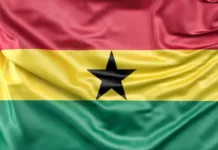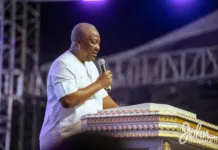
I am very grateful to all my compatriots who after reading my first “Serving My Country” article sent me emails encouraging me to do a book on my Namibian experiences.
The Foreign Service is run by career officers who, depending on their line of service, aspire to reach the pinnacle of their careers as Ambassadors, High Commissioners or Permanent Representatives or Directors at Headquarters. Known as Career Diplomats, their tenure is more to do with career progression in the Civil/Foreign Service than political patronage – even though politics can sometimes influence those appointments too.
Ambassadors and High Commissioners do not however come exclusively from the career class. Some are appointed by the political authority and come from all walks of life, often referred to as Politicals.
Other levels, from Head of Chancery, to Consular Officer and other offices are filled exclusively by professionals chosen from within the Foreign Ministry and Intelligence Services, while Information Officers at some posts come from the Information Service Department or are political appointees.
It is a delicate balancing act where the career people should not be unduly disadvantaged in favour of the politicals. In other words, career progression must not be sacrificed for political considerations. Conversely where a government relies too heavily on the career people, it misses out on competent, albeit non-career Heads, to represent the country abroad.
In practice, the careers also harbour political affiliations and crucially, they are not disenfranchised in political elections. They have the vote and their votes have the potential, like any other vote in an election, to influence outcomes…
What is not kosher is open politicking whilst at post. While the Foreign Service is seen as the elite branch of the Civil Service, the Public and Civil Service rules and regulations guide all professional behavior while at post abroad. Political activism is forbidden because Civil Servants have to work with whatever political party is in government.
Some of the political appointees are not politically partisan at all and by the time of their appointments may have even “risen above” the exclusiveness of political parties and become “Statesmen or women”.
Some host countries do in fact prefer non-career Heads of Mission because of the direct link such Heads often have with the appointing authority. A powerful Mid-Eastern country once turned down a highly competent and experienced diplomat nominated from a major Western country. Reason: They preferred a friend of the President! In other words, a political!
A mid-level Foreign Service Officer once confided in me that the political Heads of Mission get things done faster because they are not bogged down by the “over caution” of their superiors at the Ministry back home. This is because they are not part of the Civil Service establishment and so have no fear of victimization. They have only one person to please or displease and that is the man or woman who appointed them – the Head of Government or Head of State. With the politicals, when bureaucracy is weighing them down they are often able to juggle the rules. Examples abound about how such people have been able to circumvent the “system” to get things done!
A convention has been established over the years in Ghana for retired Chiefs of the Defence Staff or Service Commanders to be appointed Ambassadors or High Commissioners. Major Seth Anthony, the first Ghanaian man to be commissioned as an officer in the Gold Coast military was Ghana’s High Commissioner to the Court of St. James (London) after Independence. His distinguished career was recognized by his British superiors during WWII when he received a field commission.
In my group we had two Lieutenant Generals and one Major General – the Lt. Generals having retired as Chiefs of Defence Staff and the Major General as the Head of one of the country’s major revenue collecting institutions, a Brigadier General and a Lieutenant Colonel. My immediate predecessor at the Windhoek Mission was a Major General, former Commander of the Northern Command of the Ghana Armed Forces. From all indications, he acquitted himself with distinction as a Diplomat for he was remembered with much affection by those he interacted with.
My other fellow political travelers were former Ministers of State, some former career Foreign Service Officers and an assortment of professionals. Juggling between the careers and politicals is what all sovereign nations do to conduct their foreign relations. Traditionally, Ghanaian postings to the major capitals of London, Washington, Berlin, Paris, have been politicals (or careers who have over the years become more or less politicals) and the multilateral missions such as Brussels, New York, Addis Ababa have been careers. Though Abuja, the seat of ECOWAS is regional, we have seen a number of politicals posted there.
Career officers climbing the ladder, accumulate much experience as they are posted from one Mission to the other and one Bureau to another at Base and by the time they have risen to the Director level where they are eligible for Head of Mission posting, they would have become highly competent diplomats. In addition, they would have polished up their professional skills through academic Masters’ Degree courses in International Relations from institutions such as the Legon Centre for International Relations and Diplomacy (LECIAD), the Ghana Institute of Management and Public Administration (GIMPA) and other prestigious institutions abroad. Professional international career progression courses are structured for various levels and categories. Our career colleagues are usually a well-educated lot!
Political or career, it is the individual envoy’s character, predilections and abilities that eventually make the difference. There are examples of brilliance exhibited by both careers and politicals that go over and above the call of duty. The name Kabral Blay Amihere was burnished in the field of journalism but shone even brighter when it surfaced in diplomacy first as the High Commissioner of Ghana to Sierra Leone and again as Ambassador to Cote d’Ivoire.
In Windhoek I met a broad coalition of diplomatic types. There was no differentiation between who was who unless they decided to disclose their backgrounds. My background as a newspaper person was most intriguing to my colleagues and I relished it. In fact, one of my very first engagements was as a result of my media background: At my first AU Group meeting, I volunteered to handle the media aspect of a charity event the Group was organizing. Together with my senior colleagues, the Nigerian and Kenyan High Commissioners (who have also since left), we delivered the goods. The initiative earned me two television appearances and two newspaper articles, all within only the first three months of my assumption of office. Call it the insouciance of the non-career diplomat… I suppose that’s where the difference lies.
But as a political, one thing is certain in a functioning democracy: Your fortunes are directly linked to the electoral fortunes of the President who appointed you…So make way for the returning politicals! Home sweet home!
By A Harruna Attah. P.O. Box CT 4910. Cantonments, Accra. arhattah@hotmail.com. December 2016




